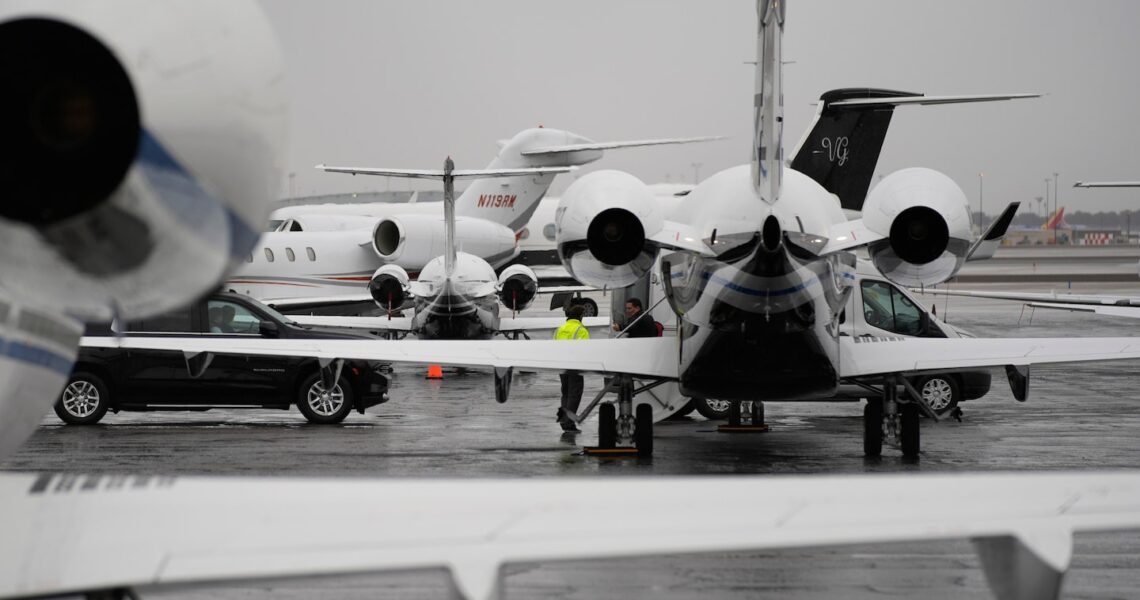Taylor Swift took one of the 882 private jets that flew to the Super Bowl.
This year’s private jet total is the second-highest for the Super Bowl, according to WingX data. Last year’s game in Glendale, Ariz., holds the record with 931 private flights since the company began tracking them in 2006.
Big events tend to attract swarms of private planes. Nearly 1,000 jets flew into Las Vegas for a Formula 1 race in November, according to WingX. More than 1,000 flew to the world leadership summit in Davos in 2022.
This year’s Super Bowl arrivals threatened to overwhelm the four airports surrounding Las Vegas that cater to private jets, which only have enough combined parking space for about 500 planes, according to the Federal Aviation Administration. Aviation officials in Clark County, home of Las Vegas, told CNN before the game that they were expecting “a good amount of drop-and-go operations,” in which a private jet lands, lets out its passengers and then flies off to another airport to wait until it is summoned again for a return flight.
Flying in a private jet is the most carbon-polluting way to travel. Private jets produce five to 14 times more emissions per passenger than commercial planes and 50 times more than trains, according to the European clean transportation nonprofit group Transport & Environment.
For instance, the first leg of Swift’s journey — in which the singer flew from Tokyo to Los Angeles in a Bombardier Global 6000, according to online flight trackers — probably produced more than 50 tons of carbon emissions, based on fuel consumption data from the private jet brokerage Guardian Jet. That’s more carbon emissions than three average Americans will create in all of 2024.
Swift’s spokesperson has said in the past the singer buys carbon offsets to make up for her jet’s emissions, but hasn’t shared details about what kinds of offsets Swift buys.
Swift was the most famous of the hundreds of wealthy people who flew into Las Vegas on private jets. Nearly two-thirds of the world’s private jets — 15,000 planes — are registered in the United States, according to data from Airbus Corporate Jets. Most of their passengers fly under the radar with little public scrutiny.
“The fact is, business CEOs are also doing this, but business CEOs are less visible,” said Victoria Haneman, a law professor at Creighton University School of Law who has called for tighter taxes on private jets.
“You have legitimate environmental concerns that are colliding with misogyny when the public only cares about private jet travel when it’s a woman who is using the jet. So on that point, I’m sympathetic with her fans,” Haneman said.

